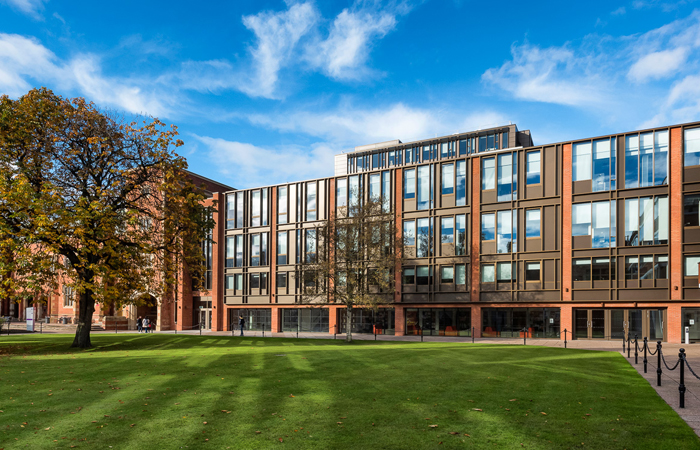The RIBA Future Trends workload index continued to push higher in March, adding six points from the previous month to stand at +22. This compares to a barely positive balance of practices expecting workload to improve at the close of 2016.
For the first time in more than a year, all four sector forecasts in the survey – private housing, commercial, public and community sectors – were for growth over the coming quarter.
Private housing remained the strongest performer at +20, despite slipping back by three points, while the commercial sector increased to +9.
The standout region in the latest survey was Northern Ireland, where the balance of practices expecting workload increases was +57, significantly ahead of the Midlands and East Anglia (+37) and the North of England (+30). Practices in London (+13) and the South of England (+6) are likewise optimistic, but clearly more cautious.
Dawson Stelfox, Chair of Belfast-based Consarc Design Group, reports that there is optimism in the architectural air over the city at the moment, despite the collapsed Assembly and uncertainty about what Brexit will mean for cross border trade.
‘It is an optimism largely led by private sector investment, a welcome change from over reliance on public sector capital projects, and marked by the number of tower cranes rising over the city again,’ says Stelfox.
‘Student housing, hotel and office sectors are all seeing strong investment, much of it inward investment, and both universities are pushing on with major development programmes. Even the residential market is stuttering back to life.’
Stelfox says Consarc is at its busiest since the recession started in 2007 and working in all the sectors he notes above. Meanwhile the conservation team is fully committed to regeneration and conservation projects, such as the opening up of the Royal estate at Hillsborough with new visitor facilities.
Like many NI practices, Consarc also took on more work in England and Scotland during the recession, a move that appears to have created a sustainable additional work stream for the practice.
Paul Crowe, Managing Director of Todd Architects and President of the Royal Society of Ulster Architects (RSUA), says he is not convinced that the perceived upturn is universal among NI architects, as the anecdotal evidence is that many are still struggling.
‘There is a nervousness about the lack of progress in forming a new NI Executive and public sector projects not moving forward, the General Election and BREXIT and all the uncertainty that comes from those issues,’ says Crowe.

Crowe reports that his own practice has been growing steadily in terms of workload, turnover and staff numbers over the last few years, although he says he is very aware of the need to be looking outside of Northern Ireland to sustain this.
He points out that Future Trends surveys do not show how much of the NI practices’ workload derives from the mainland British and Republic of Ireland markets.
According to Crowe the private sector is the most buoyant, particularly in Belfast, while housing remains slow and the public sector has entered a new period of uncertainty.
‘I would have some doubts about the sustainability of things within Northern Ireland, but despite this we remain fairly confident and optimistic,’ he concludes.
The most recent NI research from property consultant CBRE* sees encouraging signs for the commercial sector, led by a raft of new build announcements in the Belfast office market and a rising number of refurbishments getting underway.
Both the retail and hotel sectors are benefitting from the weakness of sterling against the Euro, particularly in Belfast, and property investment overall is proving resilient after initial concerns over Brexit failed to materialise, says CBRE.
The RIBA Future Trends staffing index was also up in March, adding three points to the +9 recorded in February. Only 6% of practices expected to employ fewer staff in three months’ time.
As with workloads, medium-sized practices were the most positive about future staffing levels (+20) poll significantly ahead of large (+10) and small (+12) practices.
*CBRE Marketview: Northern Ireland, Q1 2017 (requires registration).
Thanks to Dawson Stelfox, Chairman, Consarc Design Group Ltd; Paul Crowe, Managing Director, Todd Architects.
Text by Neal Morris, © RIBA.
Published on 5 May 2017.









